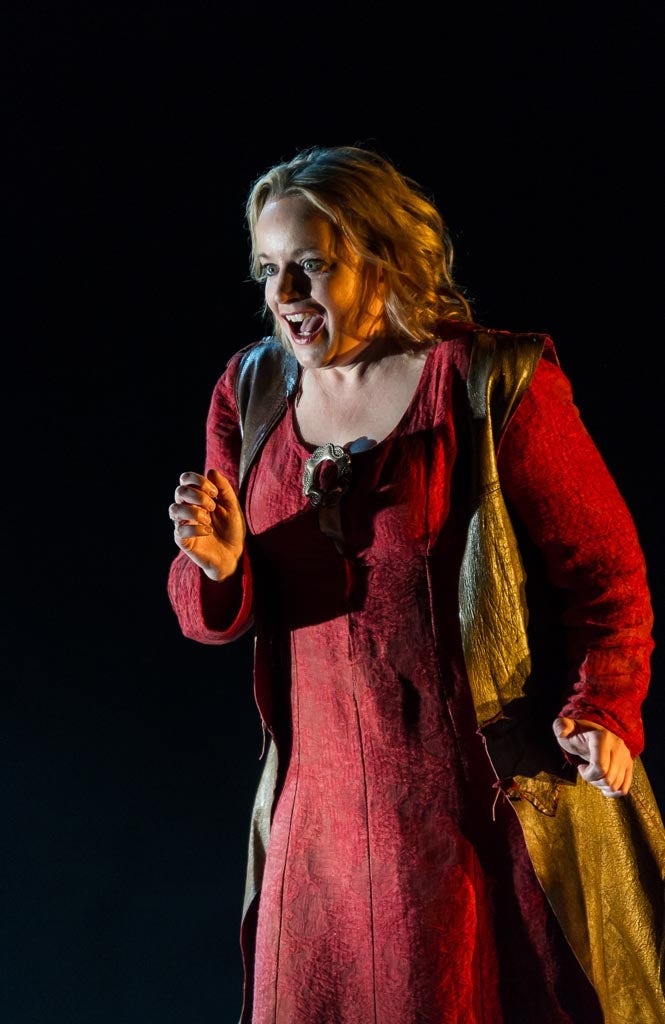Götterdammerung, Longborough Festival Opera

There’s no such thing as "can’t" – and the proof is alive and well at Longborough Festival Opera. While lyric theatres around the world might quake at the prospect of staging Wagner’s Ring Cycle – the expense, the pressure, the “controversial productions” - a converted barn in the Cotswold countryside is simply getting on with it, opera by opera, building up to the complete tetralogy for next year’s Wagner bicentenary. Götterdammerung, its climax, is also its ultimate challenge.
Longborough’s orchestra pit accommodates 70 to 80 musicians, slender for the Ring. The staging, too, is slimline: no high-falutin’ concepts or elaborate machinery, just skeletal sets, well-judged imagery and fine lighting. But condensing the opera to its essence has serious advantages, enabling the director Alan Privett to focus on its human tragedy. Not so much the twilight of the gods as of the mortals within it: Siegfried, often thought unsympathetic, shines out for once as an honest innocent destroyed by a society grown so venal, manipulative and mendacious that it has forgotten there’s another way to live. Relevant? It’s timeless.
Longborough has a strong arsenal of secret weapons, but the best of them all is the conductor Anthony Negus. He not only imbues the monumental score with extraordinary warmth, but is alive to myriad gradations of emotional temperature through its continual transitions and subtle shifts of gear. The intensity never lets up and the result, despite occasional glitches in the orchestra (this isn’t Covent Garden), is a roller-coaster in blazing aural technicolour.
Brünnhilde is the ultimate strong woman of opera, and Rachel Nicholls dominates the stage as the ex-Valkyrie, her inner strength holding fast even when Siegfried is conned into betraying her. Nicholls herself has undergone a remarkable transformation: the English soprano, who started out singing Bach, has redeveloped her voice and now matches tonal beauty and stamina with very considerable amplitude. Next stop Bayreuth?
Siegfried is the Estonian tenor Mati Turi, whose powerful tone and expressive range grew respectively more open and more rewarding as the evening progressed. Stuart Pendred is a husky-edged, snakish Hagen; Lee Bisset as a sensual and sympathetic Gutrune gives Brünnhilde credible competition; Alison Kettlewell’s Waltraute is a riveting storyteller. Superb contributions from Norns and Rhinemaidens, notably Catherine King, Gail Pearson and Meta Powell, plus the expert Alberich of Malcolm Rivers. Gunther (Eddie Wade) was the focus of a weird directorial decision, though: it’s credible in his first scene that he is wheelchair-bound – obviously he can’t climb Brünnhilde’s rock. But then, inexplicably, he gets up and walks around for the rest of the opera.
Join our commenting forum
Join thought-provoking conversations, follow other Independent readers and see their replies
Comments
Bookmark popover
Removed from bookmarks